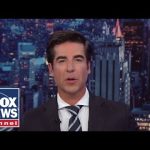**The Weight of Words: Navigating the Political Landscape of Threats**
In the world of politics, some words can cut like a knife, while others act as shields against attacks. Recently, the conversation around the former President Donald Trump has escalated dramatically, leading many to question the impact of fiery rhetoric used by politicians and pundits alike. The future of political discourse may depend on what leaders decide to do next. On one hand, there are those pushing for a united front against what they see as a potential threat from Trump; on the other, there are voices warning of the consequences that such divisive language could bear.
The recent spike in bold statements takes center stage, as people are not shy about expressing their opinions. Some leaders have gone so far as to equate Trump with historical figures like Hitler, intensifying the already heated political atmosphere. This rhetoric has fueled actions from individuals on the fringes of society—individuals who may feel that taking matters into their own hands is the only way to achieve what they believe is justice. With discussions of “whatever it takes” to thwart Trump’s political return, it raises the unsettling question: where does one draw the line between political fervor and fanaticism?
The very real threats against Trump underscore the urgency of finding a constructive way forward. With recent acts of violence aimed at the former President, as well as past incidents that went underreported, many wonder whether the dialogue surrounding Trump could be putting lives at risk. Utah Senator Mike Lee has articulated concerns, suggesting that citizens may not be able to trust federal investigations, signaling deeper issues of transparency within the government. This leads to a troubling realization: if regular Americans begin to believe that their government is ignoring warnings or downplaying threats, the faith in democratic institutions crumbles.
Pundits are quick to note that the media’s role in this escalating rhetoric deserves scrutiny too. Reporting tends to focus more on sensational stories rather than providing context or exploring the consequences of such statements. This selective coverage can create a breeding ground for conspiracy theories, leaving citizens more confused and concerned about their leaders’ intentions. With political figures engaging in back-and-forth exchanges of condemnation, it’s hard not to imagine how an uninformed public may interpret their heated words in dangerous ways.
What might work better than incendiary comments? A call for calmness, unity, and an acknowledgment that we are all Americans, regardless of political affiliations. As laughter and applause echo through political arenas, ex-presidents and current leaders alike should seek to encourage discourse that is slow, measured, and rooted in respect. Inviting leaders from all parties to set aside differences and focus on bridging gaps could prove beneficial, especially amid threats of violence.
At a time when every tweet, every speech, and every televised dialogue is scrutinized, leaders have the power to significantly influence their followers. While they might passionately disagree on policy matters, recognition of each other’s humanity should prevail. A more balanced approach to political rhetoric would not only pave the way for a more stable political future but would also signify to the citizens of this great nation that democracy is not simply a shiny box ticking off votes during elections. It’s an ongoing commitment to maintaining a respect for life, liberty, and the pursuit of happiness for all—without the looming threat of violence driving the dialogue.




